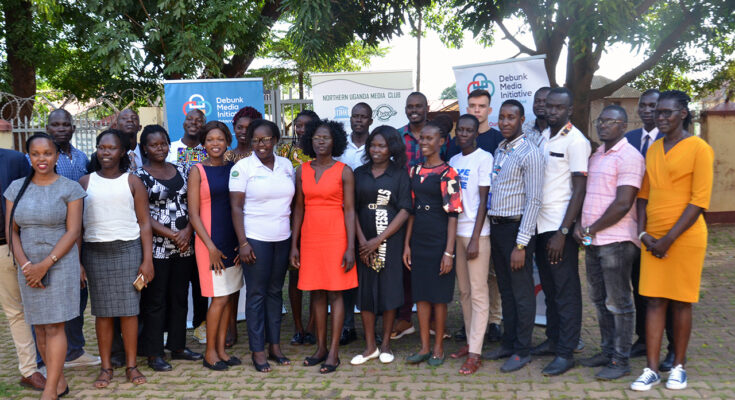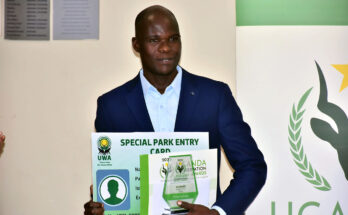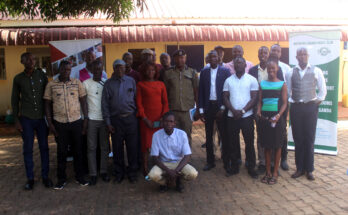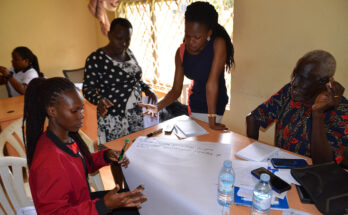In this digital age, access to information is just a click away. This makes it easy for anyone to get information in real-time. But with the unprecedented overabundance of information online, problems come in when one is unable to verify whether the kind of information they are consuming is real or fake.
In a recent training, journalists spent the better part of their two days’ training learning how to fact-check or spot false information using online tools. The training was organized by Debunk Media Initiative, a fact-checking organization, in partnership with the Northern Uganda Media Club (NUMEC), a media development organization based in Gulu City.
During the training, at least 20 journalists who work across northern Uganda were equipped with skills in spotting false information; how it spreads; how to verify it on social media; how to find credible online data; and how to use online tools to verify images and videos.
To ensure that journalists grasp these skills, the training also blended several learning methods including practical sessions, where journalists were asked to use digital tools for fact-checking online information; inquiry-based learning to enable them to question, and understand their knowledge on fact-checking; and it was learner-centred to guide the trainees appropriately.
Edgar Mathew Karuhanga, the Lead Fact-checker at Debunk Media Initiative, said that equipping journalists with fact-checking skills is important because it enables them to disseminate accurate and factual information to the public they serve amid the scourge of fake news.
“Journalists need to know that many people rely on them for information,” said Karuhanga. “They need to know how to critically think to avoid misinforming their audience. And to do that, “they need to know how to authenticate [online] information from trusted sources before sharing them”.
Karuhanga also noted that fact-checking information matters a lot in the media industry because “sharing verified information enables the public to address community biases and stereotypes,” adding that “this also helps the public make informed decisions”. “The other thing is that it also helps us hold authorities accountable,” he said.
For the most part during the training, Karuhanga also explicitly reminded the journalists why it was paramount to understand all kinds of false information (mal-, dis- and misinformation) that spread online, their nature and impact, including the intricate ways of combating them.
Karuhnaga also noted that it was imperative for all journalists to understand how hackers operate to avoid falling for the false information they post online.
Oftentimes, he said, hackers tend to be “too hasty in posting information” after gaining access to someone’s account, adding that this is because they “want to gain traction by maximizing their time so that they can have an instant impact”. “Hacked accounts are sometimes automated and they operate like a bot,” he added.
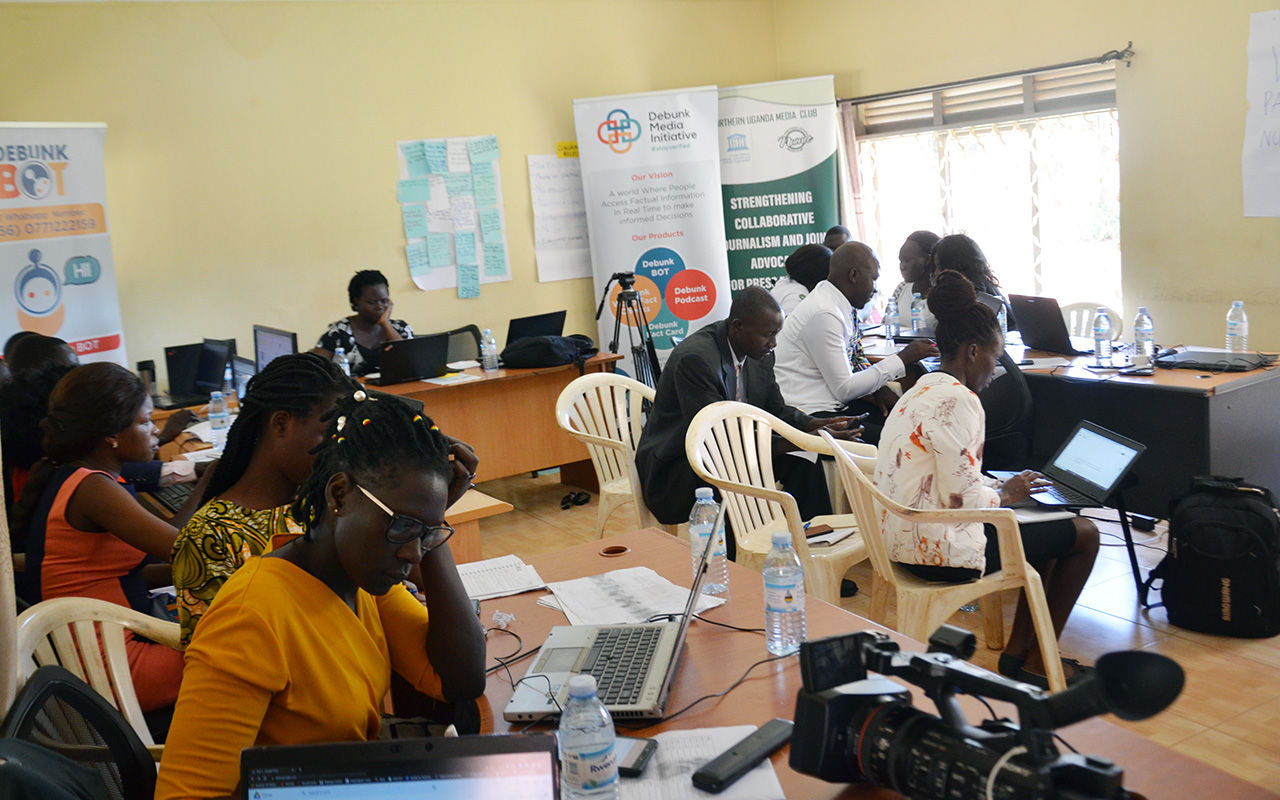
Rukia Nabbanja, the Content Lead at Debunk Media Initiative, said that despite online posts –photos, videos, social media texts- which can be verified, there are certain forms of data that cannot be fact-checked such as “one’s predictions and opinions which are based on lived experiences”.
She tasked the journalists to practice their fact-checking skills after the training, starting with spotting false information in their daily work.
“You can examine the sources of information, compare what other media houses have and check if there are any inconsistencies,” she said.

